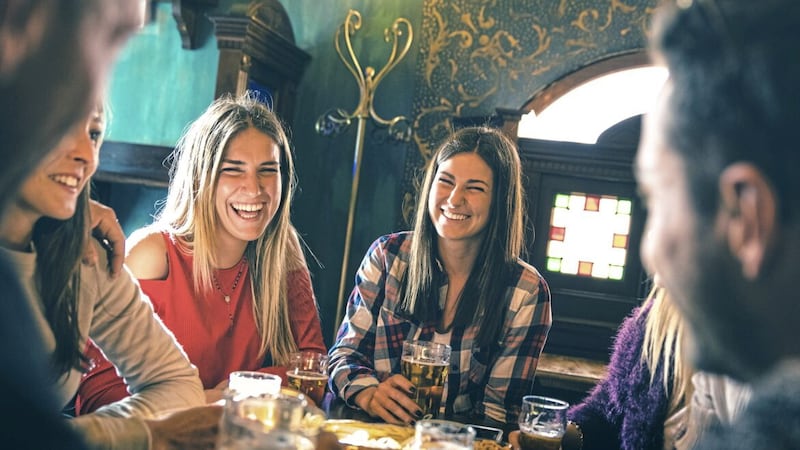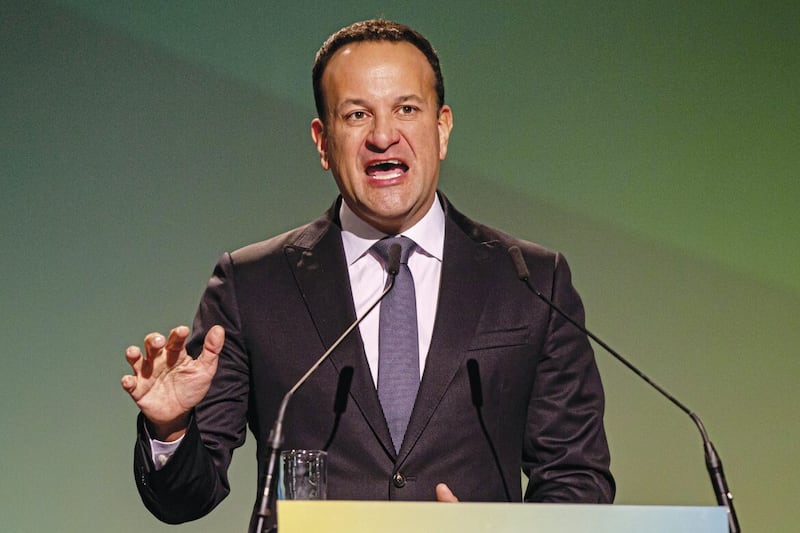Dry January has become a thing in the last few years.
I’m not sure who came up with the expression or idea and, of course, the rationale of a detox after the excesses of the Christmas and New Year period makes sense. But I am of a generation where people gave up the drink for Lent or in November as a sacrifice to the holy souls and where January was the month of the quiet pint in the local pub because sitting in was just too depressing.
There is a stock image of an Irish country pub as a low-ceilinged room with a long bar and a fire along the opposite wall. There will be memorabilia on the walls – maybe sporting, literary or the license plates of all 50 states of the USA. The jukebox might have been replaced by Spotify on a smartphone, but the playlist hasn’t changed a great deal in 25 years.
The Hogan Stand has a special place in the hearts of my family and I don’t mean the north facing terraces of GAA headquarters (although, le cúnamh Dé we’ll be there a fair bit in the coming months waving Derry flags).
It’s also the name of our local pub, where we wet the baby’s head after his christening and where he had his 18th birthday party. It hosted the “afters” for our daughter’s wedding.
It's the sort of pub where you can walk in and sit at the bar, the fire will be lit and there will always be someone to chat with. It smells of turf smoke, leather and chewing gum and you’re as likely to be handed a slice of cake from the celebration going on in the lounge as you are to overhear a chat about the shocking prices at the tip sales in the town.
One of the most significant after-effects from the Covid-19 pandemic is how much less we do in person any more. We all sat at home ordering from Amazon and Asos. We did click and collect or home delivery on the groceries and we moved our banking almost exclusively online. A lot of this was because we had little or no other choice. We learned to live in a semi-solitary confinement and if truth be told, we have taken our sweet time coming out of it.
How many of us downloaded the House Party app and got dressed up on a Saturday night to sit in the house and have a virtual drink with our friends, or joined a zoom party with family? We didn’t drink any less, we just did it in the confines of our own homes and not the local pub.
Many sports and social clubs have bars and there is something to be said for people who share a common interest in GAA or rugby or bowls coming together to socialise, but it is a very different vibe than the local pub. It’s grand going to the club once in a while to watch a Championship match on a Sunday afternoon but it’s not a place of quiet contemplation or neighbourly conversation. A club is a destination, but a pub is a journey.
The local pub is a friendly, homely place that fosters social relationships amongst people in the community, that strengthens cohesion in towns and village across this island and that positively contributes to communal well-being.
Which begs the question as to why so many of them have closed in the last number of years. Over the last 16 years, the number of pubs in Ireland has declined by 21 per cent, including hundreds which never reopened again after the closures enforced by Covid-19. It’s an industry that has been in decline for years, and we bemoan each little country pub that closes but we don’t do anything about it.
Yet in England it is a different story. In March last year, the British government announced that funding from the Department of Levelling up, Housing and Communities was to be used to save a number of rural pubs that would otherwise have closed and has instead put them into community ownership.
In rural Wiltshire, for example, a pub that has stood at the heart of the communities of the Ogbourne Saint Andrew, Maizey and Rockley hamlets for over 100 years was thrown a lifeline with investment of £237,500. The Silks pub is the only place that locals can get together, making it vital to the lives, wellbeing, and economy of the community.
The funding recognises that rural pubs are a vital part of our social fabric that bring people together, help to tackle loneliness and social isolation, and provide a range of services for rural communities they serve.
Perhaps it is time we started thinking more like the English.








